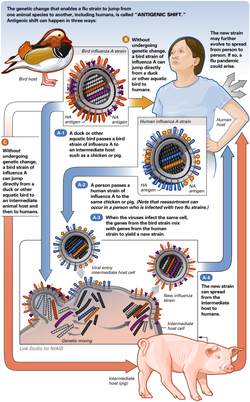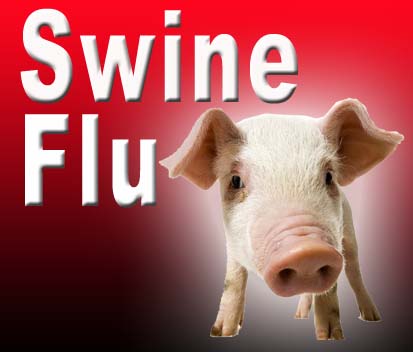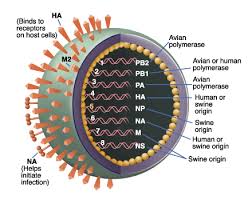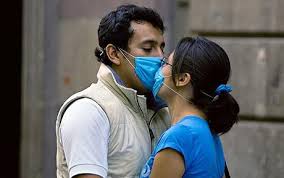Warning against unsupervised use of antiviral drugs

By Pongphon Sarnsamak
The Nation
source:http://www.nationmultimedia.com/search/read.php?newsid=30101889&keyword=swine+flu
The Public Health Ministry has issued a warning against people taking the antiviral drug Oseltamivir as a precaution against infection with the influenza A (H1N1) virus, commonly know as swine flu.
As Thailand joins countries around the world in the battle to halt the spread of the virus, the ministry said people panicked into selfadministered doses of Oseltamivir without medical supervision could damage their mental health or unwittingly increase the resistance of viruses to drugs aimed at stopping their spread.
"People who appear unwell and who have fever and a cough should not take Oseltamivir by themselves," Public Health Minister Witthaya Kaewparadai told a press conference at the Ministry's operations centre for preparedness and response to an influenza pandemic.
Patients should undergo treatment at a hospital to prevent possible side effects that could harm their physical and mental health, such as vomiting and suffering hallucinations, he said, citing research in Japan.
The Public Health Ministry's deputy permanent secretary, Paijit Warachit, said taking antiviral drugs without medical supervision also raised the risk of viruses developing resistance and reducing the effectiveness of the drugs.
He suggested that people with flulike illnesses should wear a surgical mask covering the nose and month to reduce the risk of transmission.
The symptoms of swine flu in humans are fever, lethargy, diminished appetite and coughing. Some people have also reported a runny nose, sore throat, nausea, vomiting and diarrhoea.
Humantohuman transmission occurs when infected people cough or sneeze. People may also become infected by touching any object, the surface of which is contaminated by the flu virus, and then touching their mouth or nose.
At present, The Public Health Ministry has 3 million antiviral tablets in stock, while the Government Pharmaceutical Organisation (GPO) has 170,000. If necessary, the GPO can immediately manufacture another 1 million tablets of Oseltamivir because it has the raw materials in stock.

GPO director Witit Artavatkun said infected patients needed to take two tablets per day for five consecutive days.
He said the GPO could deliver the AFlu medicine to Bangkokbased medical facilities within 12 hours. For those outside of Bangkok, delivery could be made within 24 hours.
The World Health Organisation has now advised all countries to intensify their surveillance for unusual outbreaks of flulike illnesses and severe pneumonia.
The outbreak of influenza A (H1N1) in Mexico has already infected more than 658 people in 16 countries around the world. Seventeen people have died.
Disease Control Department spokesman Kumnuan Ungchusak said measures to identify and treat infected patients flying back from outbreak areas was the key to preventing the sickness from spreading in Thailand.
The Health Ministry has now installed six thermal scanners at Bangkok's Suvarnabhumi Airport and will check every passenger coming through the airport, around the clock.
The scanners have examined 216,448 arriving passengers over the past six days. On Sunday only about 7 of 34,735 arriving passengers were found with high body temperatures, but most were later cleared.
So far, there have been no reported cases of the H1N1 strain of swine flu in Thailand.
When 14 Thais arrived back from Mexico by United Airlines yesterday, the Public Health Ministry sent ambulances to take them from their aircraft to the arrival terminal for medical check ups.
Those of them who passed thermal scanning and physical examinations will be followed by a medical team for a week, Kumnuan said, and those who develop high body temperatures will be placed under close hospital surveillance.
"We suggested that the people who flew back from Mexico should stay at home for at least seven days and the medical team would follow the development of any symptoms. The influenza A (H1N1) virus has an incubation period of three days," Paijit said.
 Bureau of Epidemiology chief Pasakorn Akarasewi reported that one Thai woman in her 40s was placed under close surveillance although her initial flutest results were negative. She has now been allowed to go home after tests confirmed that she was suffering from ordinary seasonal influenza.
Bureau of Epidemiology chief Pasakorn Akarasewi reported that one Thai woman in her 40s was placed under close surveillance although her initial flutest results were negative. She has now been allowed to go home after tests confirmed that she was suffering from ordinary seasonal influenza.Pasakorn said the Department of Medical Science had also been examining specimens collected from an 11yearold boy from Buriram, who appeared to be unwell after flying back from New Zealand. He said the boy could also be suffering from seasonal flu.











